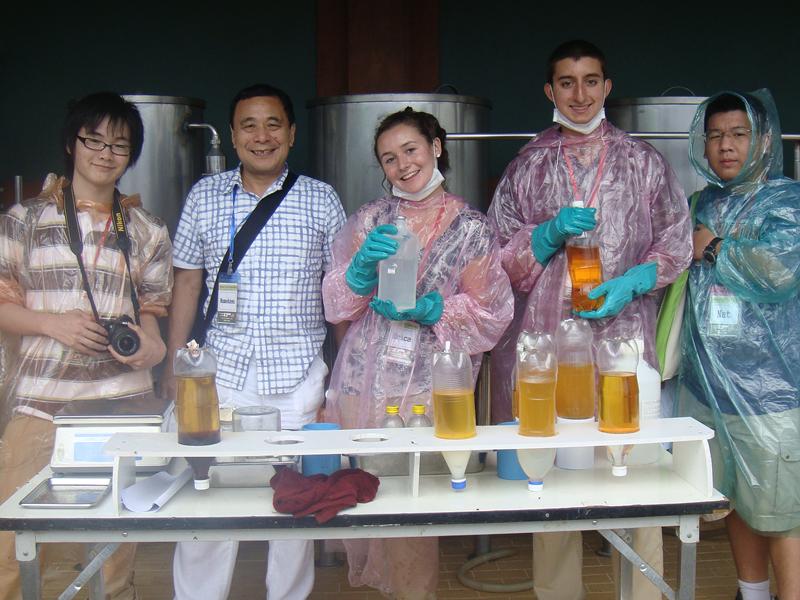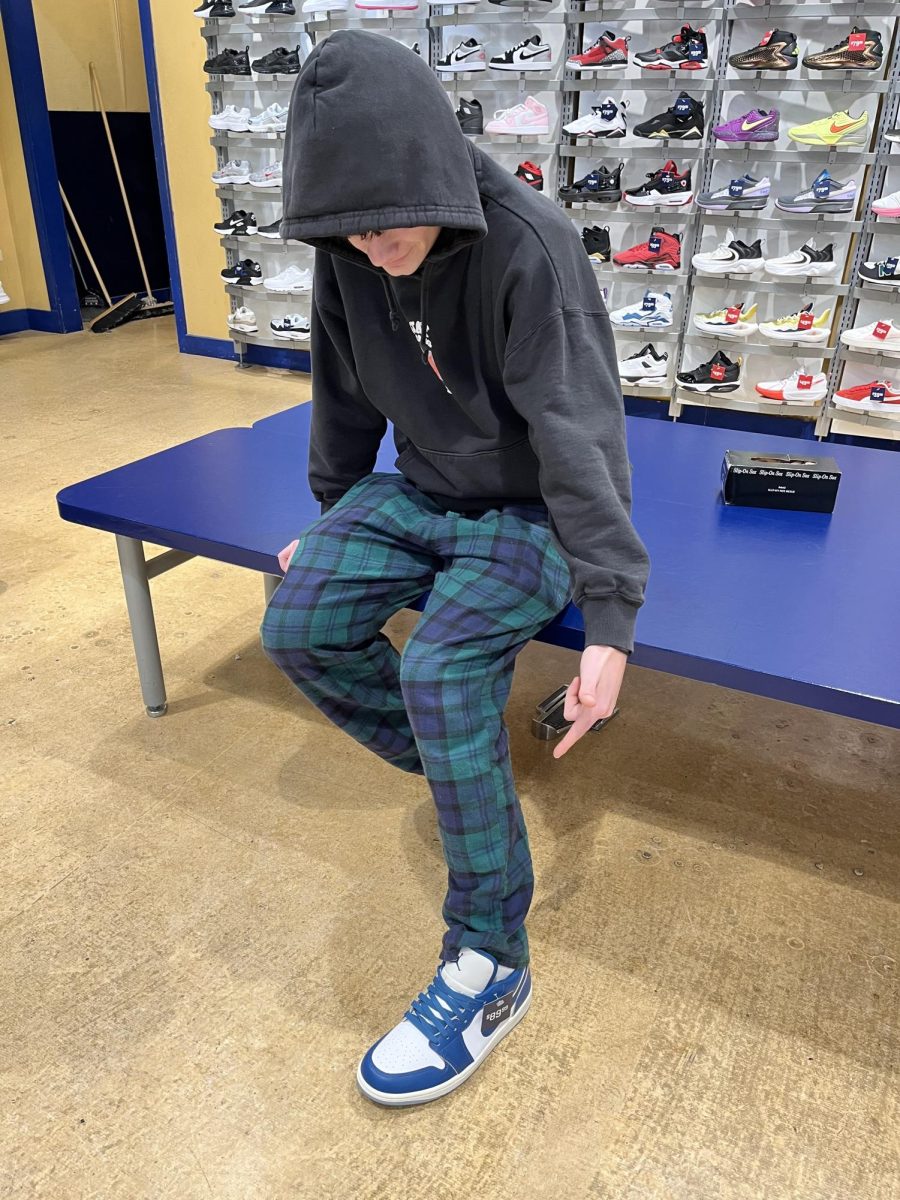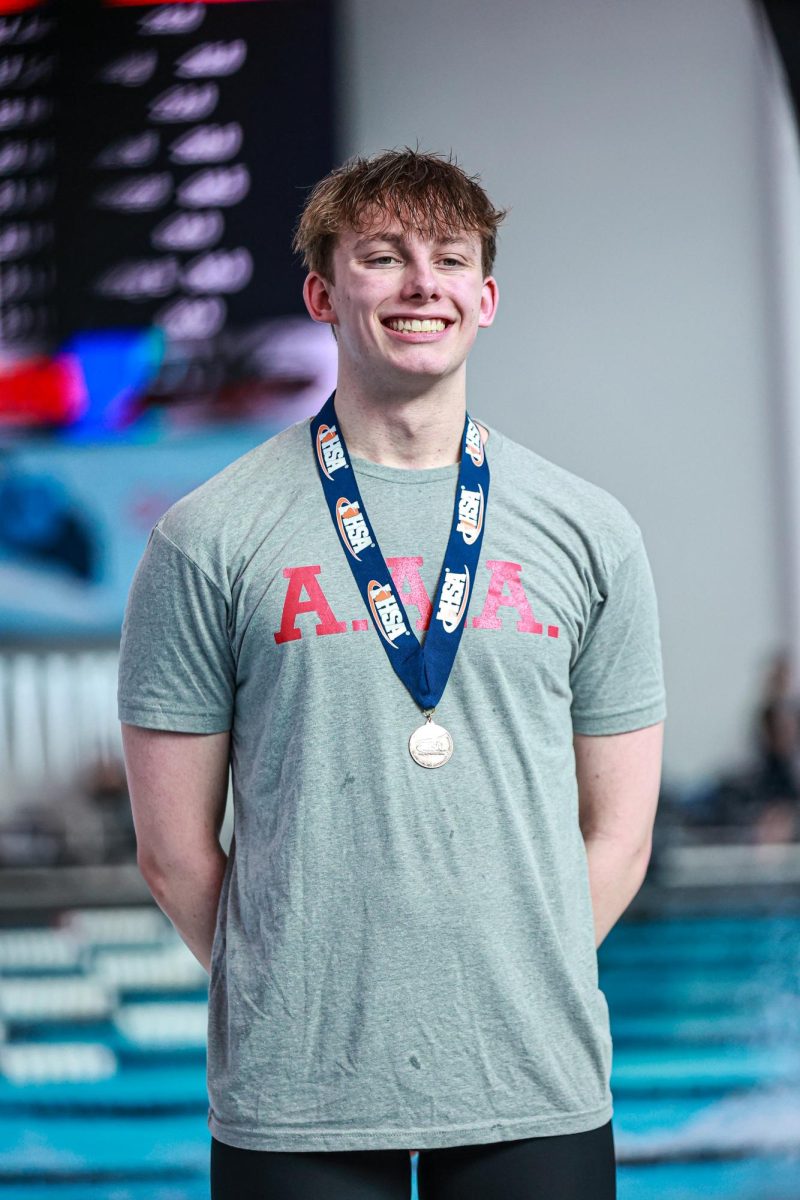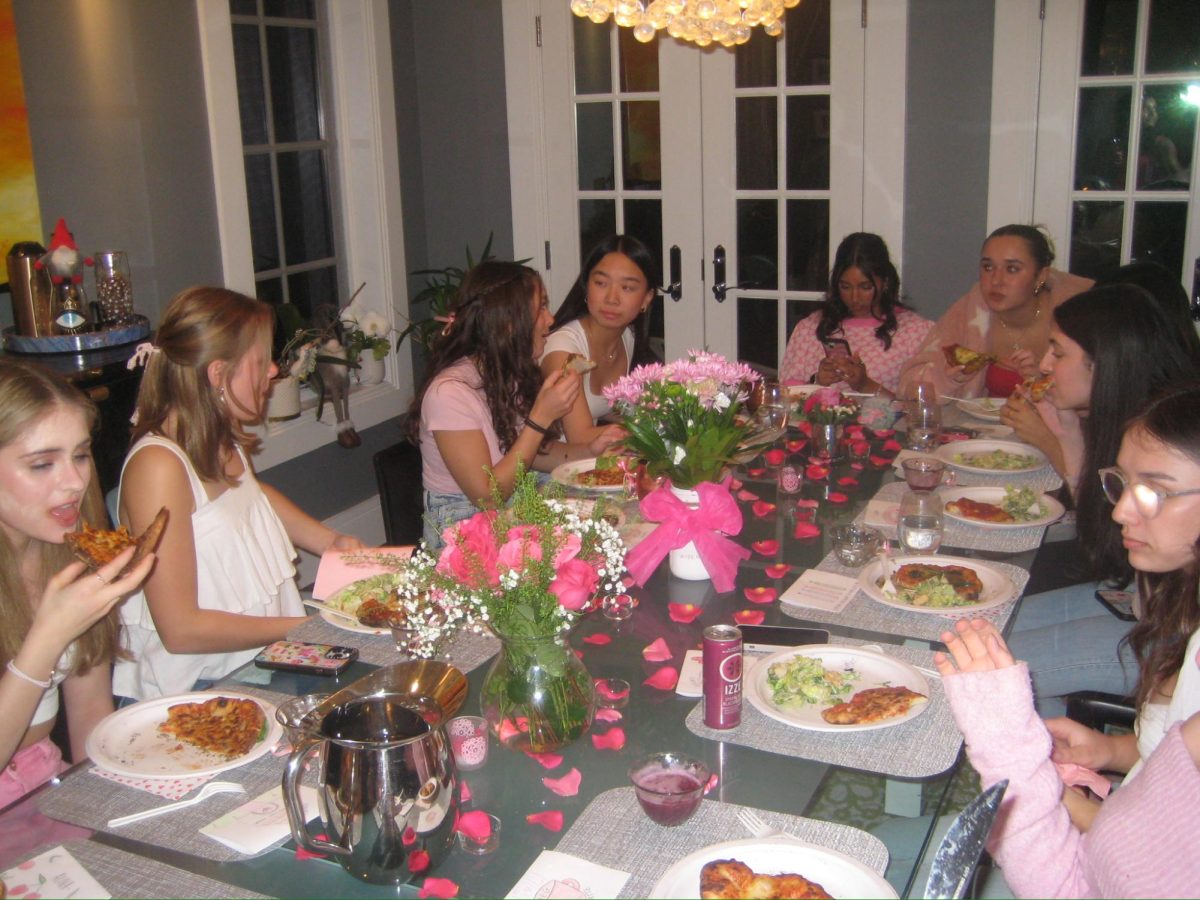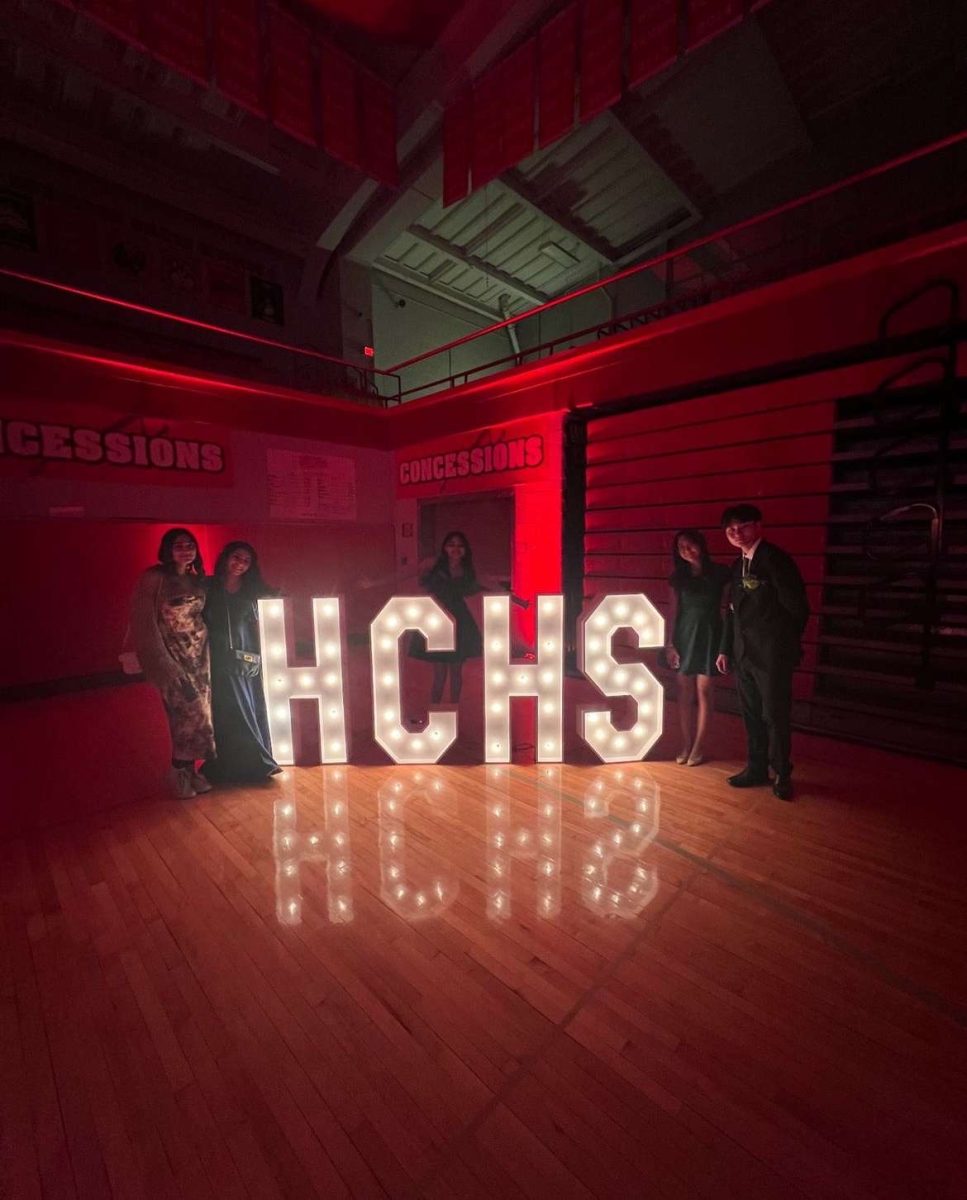It’s only a few weeks into the school year, yet summer vacation seems like a distant memory. As the weather gets colder, students will reminisce about time spent basking in the sun without a care in the world. Four students will reminisce about making biodiesel and ice cream at the Farm Chockchai in the middle of Thailand. Not to mention spending time at a conservatory owned by the King of Thailand, visiting the Sirindhhorn Science Center, meeting kids from all over the world, and giving a presentation to the former presidents of Toshiba and the Tokyo Stock Exchange.
From August 11 to August 19, seniors Tommy Mulc, Danny James, Erica Arnold, and junior Emma Jerzyk participated in the Toshiba Youth Conference for a Sustainable Future in Thailand, accompanied by Mr. Jensen and Mrs. Fernandez. They were joined by students from a wide variety of latitudes and longitudes. Japanese and Polish students joined Thai and Hinsdale Central students in Thailand. The main purpose of the conference was to gain a better understanding of the world’s environmental problems and their solutions. The group spent a lot of time discussing and learning about these problems, and also the solutions. It culminated in a group presentation on ways to be more “green.” Some may want nothing to do with education until the first day of school, but Tommy Mulc simply said it was “amazing.”
The Toshiba Youth Conference for a Sustainable Future is held each year with a focus on environmental science. This year, the theme was “Achieving Harmony with the Earth.” According to Mulc, the theme was best described by a priest that volunteered for the trip.
“The priest asked how big are the soles of your shoes, how disconnected are you from the Earth. Americans seemed to be wearing five-inch heels, while in Thailand, people hardly even wore shoes. They were in harmony with nature.” Jerzyk said, “It was essentially to exchange cultural ideas and viewpoints on the environment with others.”
In order to learn how to live in harmony with the Earth and to provide a venue and context for these discussions, Mulc, Jerzyk, and the group visited locations around Thailand. Some of the group’s most memorable activities happened when they visited was Farm Chockchai, a completely self-sustainable farm. Jerzyk really enjoyed staying at the farm. Especially with a conference on the environment, she said “It was great to be close to nature, it was a daily reminder of what we’re preserving.”
Mulc’s favorite part of the trip happened at the farm. “We got to make biodiesel. First we learned about the chemistry of it and how they make it, and then we got to make it.” At the farm the group also got to make their own ice cream, from start to finish, starting with milking a cow. The food, including the ice cream, was one of Danny James’s favorite parts of the trip. James also enjoyed planting rice and meeting all of the other students. “I can say I have friends all over the world, in Japan, in Poland, in Thailand.”
At the end of the program, after touring the Royal Conservatory and the Sirindhhorn Science Center, the group divided into groups of five to give presentations, which were more like press conferences. “The final presentation was the main purpose of the whole trip. We presented in front of a bunch of big people. The press was in the first row.” All of the groups had one topic of a more eco-friendly lifestyle; Mulc discussed green roofs and James discussed the problems with plastic. James’s studies during the trip gave him new ideas on “going green.” “My final presentation was on plastic, and I learned it’s one of the worst things ever for the environment. It just stays around for so long,” James said. The trip also made Jerzyk much more conscious of her actions and their impact on the environment, “I learned more about the environment, and now I know I can do little things, like turning off the lights, taking shorter showers, I realize I can take steps to help the environment in my life.”
The group also produced a newsletter about all of their discoveries and experiences. This is where Mulc noticed how easy it was to work with the foreign students. “There wasn’t really a language barrier, it was an accent barrier. They wrote really well, no grammatical errors.” Even living in different continents, Mulc said the students “weren’t that different” and were all “well-selected for the program.”
In fact, Mulc said one of the biggest benefits of the trip was to “Meet a lot of people; it makes you feel more globally connected.” “I met more people and having connections around the world is very beneficial,” Mulc said. James said, “I made a lot of new friendships. The places the other students were from aren’t just random places on a map anymore, they have a face.”
“It’s important because we’re becoming more globalized, becoming a more global economy. It’s important to know how others live,” said Mulc, “We learned we don’t always do things the most efficient way, it makes you be more thoughtful towards others around the world.”
Jerzyk said, “It’s very beneficial to see others’ perspectives. For example, nuclear energy. It’s a problem in America, but it’s so much more relevant in Japan because of the crisis.” Jerzyk said one of the main benefits was just “hearing the stories of people from different cultures.” Jerzyk also said, “It was fascinating to see how others viewed these environmental problems.” She also found the students’ perspectives on less serious matters interesting. “One day we were talking about TV shows we watched back home, and one of the Japanese boys said that he really liked watching Sex and the City. I told him that it’s a women’s show in the US. He couldn’t believe it. He just thought it was really funny.” She also said, “it was fascinating to see how they viewed America, and how we viewed their countries and then to see how our views compared to reality.”
Not only did the students become more globally connected, James said he also “experienced a lot of personal growth, and that’s always good.” Because of all of these benefits, when asked if Hinsdale Central should try to expand its opportunities for studying abroad, he said “Definitely. It’s a great idea. You get to meet people while see different parts of the world.”
Mulc thinks there would also be other benefits to students traveling around the world, “It’s good to know about different cultures, and to know how other cultures live.” “We need to respect other cultures, and the best way to learn how is to do it yourself.” Jerzyk was also very enthusiastic about the idea. “It’s an amazing opportunity. Especially in Hinsdale, where your perspectives are so sheltered, seeing other perspectives is very beneficial.”
However, Mulc said that there needed to be an application process for any such trip. “There were eighty applicants for this trip, and I don’t think all of them were passionate about learning and learning about the environment. Some just wanted to go to Thailand.” All of the students on this trip had to go through an application process that included two essays, one explaining their desire to go to Thailand, and an interview. Mulc said, “[Expanding the program] would be good, but be cautious about who’s just going on these trips.”
Hinsdale Central does offer some trips to students who are interested in traveling around the world. This past summer, Spanish students had an opportunity to go to Ecuador and German students recently got to travel to Germany. However these trips are over school breaks and aren’t a part of a curriculum. Most studying abroad will have to wait until college. However, Mulc said that he didn’t want to study abroad in college. “International students want to study in the US. The US universities are ahead, they have great professors, and a lot of resources.” He also said, “It doesn’t give you a cultural experience.”
James was all for more programs at Hinsdale Central, and for any students interested in going on a trip to create biodiesel and give a press conference, he said, “I think the Toshiba program is coming back next year, for all new kids.” If all new students are attending, James will have to be content with his memories of planting rice and “the food. It was really spicy and really good.”




